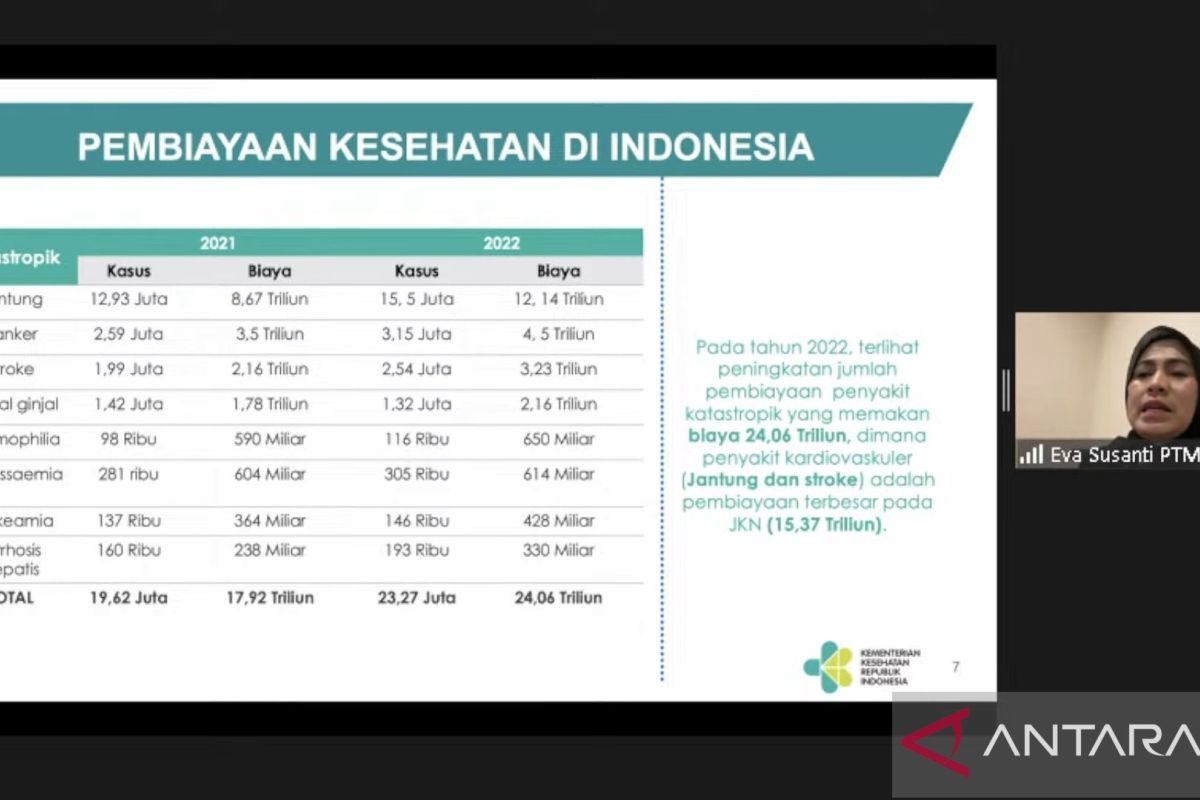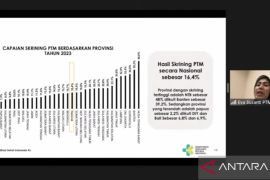"Heart disease and stroke cost more than half of the budget for non-communicable diseases," the ministry's director of non-communicable disease prevention and control, Eva Susanti, highlighted at the 2023 World Heart Day press conference, which was broadcast on the Ministry of Health's YouTube channel on Thursday.
She said that Rp10.9 trillion (around US$697.8 million) of JKN funds alone were used to cover the treatment costs of heart disease patients in 2022, whose number reached 13.96 million.
Health financing for non-communicable diseases such as heart disease, cancer, diabetes, chronic lung disease, stroke, and hypertension reached Rp24.05 trillion (around US$1.53 billion) in 2022, an increase of Rp17.92 trillion (around US$1.14 billion) from the previous year, she added.
The cases were mostly caused due to an unhealthy lifestyle, such as lack of physical activity, unhealthy diet, smoking, and stress.
"There is an effect from the high consumption of sugar, salt, and fat, or unhealthy diet, and very low consumption of fruit and vegetables; 95.79 percent of Indonesian people have very low consumption of fruit and vegetables," she said.
Furthermore, smokers, whose number reached around 70 million in Indonesia, also contributed to the cases of non-communicable diseases, especially heart disease and stroke.
"Apart from that, more than 79 percent of Indonesians lack physical activities and there are some that still drink alcohol," she added.
On the same occasion, a heart and blood vessel specialist, Erta Priadi Wirawijaya, stated that another factor that can cause cardiovascular diseases is stress, which can increase the heart's workload.
He elaborated that stress triggers heart problems due to increased blood pressure from the biological reaction of releasing stress hormones, such as adrenaline.
Stress can also potentially boost the production of cortisol, which can affect the body's metabolism and cause an increase in blood sugar levels.
"High blood pressure is a major risk factor for heart disease," Wirawijaya said.
Related news: Number of smokers among kids and teens increases: Health Ministry
Related news: Cigarettes pose threat to Indonesia's demographic bonus in 2045
Translator: Andi Firdaus, Raka Adji
Editor: Rahmad Nasution
Copyright © ANTARA 2023












